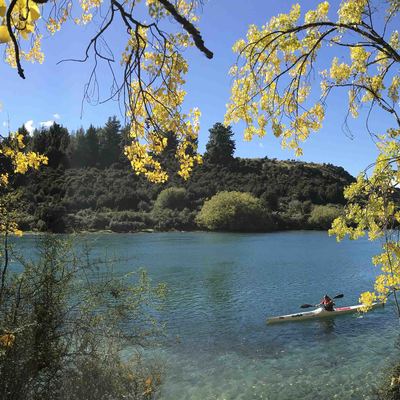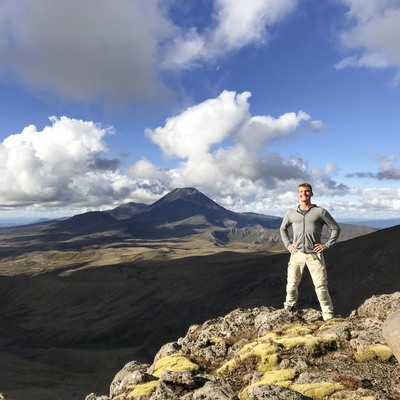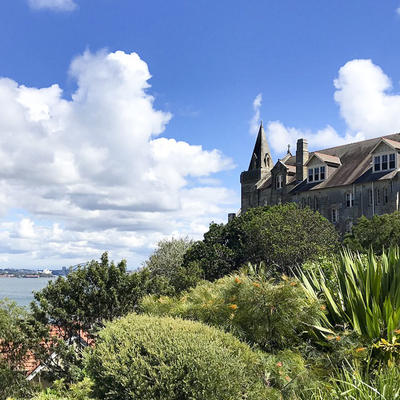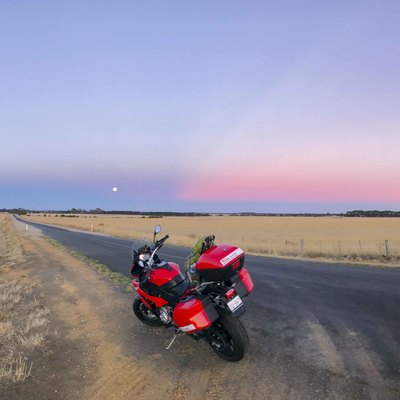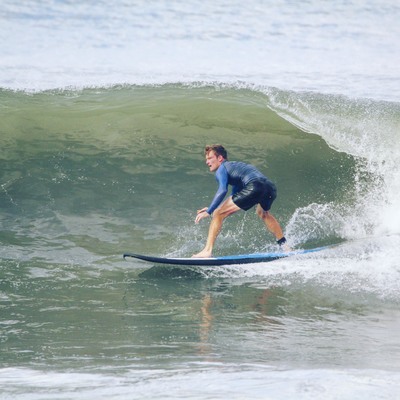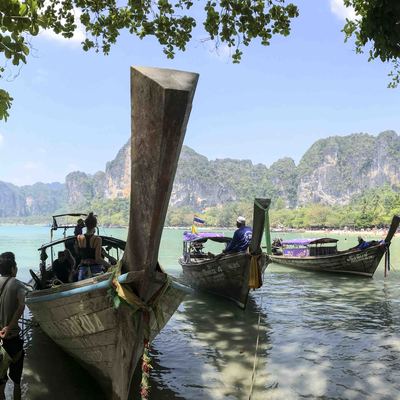West Virginia White Water (Not Backwater)
West Virginia suffers from a bad reputation. Upon being informed of my choice to visit the "Wild and Wonderful" state, almost everyone had some form of snarky comment or cautionary advice to offer. It seems that folk have collectively forgotten that Deliverance (based on a fictional book, I might add) occurred in Georgia and that hillbillies with shotguns harass travelers with surprising irregularity. I guess it's just easy to write off a state without a major city as just an uncivilized country backwater.
My actual impression of the state was nowhere near to the stereotyping I'd endured for weeks before and I rank it as one of my favorites so far. To begin our experience there, my girlfriend and I woke up very early in the morning so we could drive 3 hours south from Morgantown to go white water rafting. The rainy AM drive through the Appalachian mountains was a rollercoaster of twists and turns that I longed to be able to ride (we took the car for safety and practicality reasons).
The trip itself, via Rafting Adventures on the New River, was well worth the trouble of the late night and early wake-up. We geared up at the main lodge and took a school bus on a half hour trip down steep, winding and narrow dirt roads (pucker factor high) to the shores of the river. The Lower New River is a moderate trip, with approximately 20 rapids and a handful of class 4's and 5's. For my first time out, it had a good blend of quiet stretches to swim and active descents into the whitewater.
Our guide Dylan, a lifer of the industry with a bushy beard and a hoarse roar, was fantastic. He talked us through the best approaches to the rapids and explained why we had to follow his orders like slaves in a Roman war galley. Despite the analogy and the utter ineptitude of the roughhousing 17-year-olds in the front of the raft, it was just the right blend of educational, challenging, and adventurous.
We learned the different ways that water reacts to obstacles. In some cases, a run around a rock will produce eddies in its shadow that actually pull the boats back upstream. In others, water pouring over an obstacle will create hydraulics (vertical eddies) that recirculate water explosively backwards and can actually be surfed by the large rafts. By the end of the experience, we all had our river legs and were hungry for more. I'm definitely interested in trying out a more challenging descent later in my trip (read: Colorado).
As interesting as the rafting was, I got at least as much value from peppering Dylan with questions about the history of the industry and the surrounding countryside, which he answered like a devoted historian. The river had cut a deep gorge between steep, verdant mountains to either side and the right of way was dotted with giant boulders and shale outcroppings. A railroad track twisted along the side of the river and the birdsong was broken at irregular intervals by the roar of protesting locomotives straining to pull huge trains up the grade. Those tracks were a piece of living history.
Dylan explained that the railroads had arrived first to the mountains, buying up the land and the mineral rights beneath. They then turned around and sold those rights to the mining companies, who were eager to pull the high quality Anthracite coal from the depths of the hills and began relocating people from their homes to do so. Mining towns cropped up throughout the hills and prospered into the early 1900's, when the railroad tracks were dotted with coking ovens run by locals to improve the value of their product.
Industrial processes later obviated the need for those ovens and set about a long term decline for the region's locals. The bones of those coal towns now littered the mountainsides, long ago having surrendered to the trees, and filled the area with the echoes of a previous age. From time to time, Dylan pointed up the slope and we could identify the stones of what used to be a rail building or general store before it was reclaimed by the surrounding land.
The region saw a resurgence in the 1990's when rafting exploded in popularity. I've wondered before why some places seem to promote their local tourism niches so aggressively when they seemed so small but Dylan and the others on our raft painted a picture of rafting as one of the sole life preservers that provided income and employment for people in the local towns. Since the peak around the turn of the millennium, the industry has undergone significant consolidation and has been growing into a one-stop shop for adventure seekers in hopes of staying relevant amidst competition from a growing number of related activities. The group of just-graduated high schoolers pointed out that, in this region, you either went into tourism or coal and neither of those was currently exploding.
Exhausted from our trip, we returned to Morgantown and prepared for the wedding of my former Houston housemate. It took place on Saturday, beneath the constant threat of rain, at the family farm of the infectiously energetic and amazing bride. The ceremony was straight to the point and the party lasted into the night. I basically destroyed a pair of pants by wandering off and exploring the farm, but I really couldn't help it with the hills, fields and animals all around. I wish I'd brought my camera but I rightly assumed it would have been in danger among the festivities. Suffice it to say, the bride's upbringing on that farm must have been a truly wonderful experience and it absolutely shows through in her spirit.
The wedding was one of the major milestones of my trip, and once it had finished and all my friends again dispersed, my sights turned forward to the next phase of the journey. From West Virginia, my schedule has me ping-ponging through the upper Midwest before arriving at Sturgis for my birthday and the huge motorcycle rally. From there, it's onto the Northwest and eventually to San Francisco for a week to scout it out for my impending move there. That marks just about the halfway point of my journey and even getting that far will be an accomplishment.

